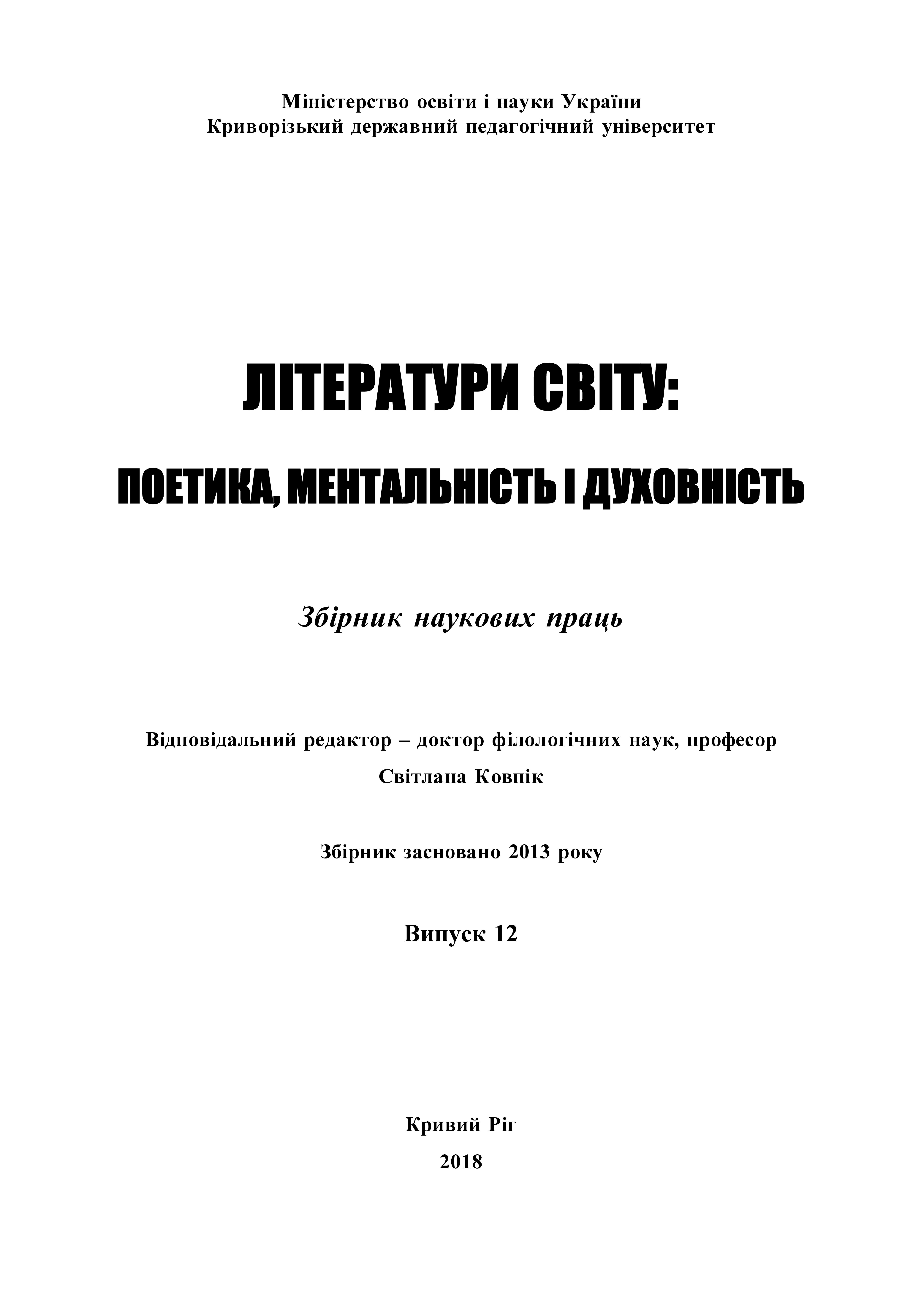Problems of terminological definition and theoretical comprehension of role lyric.
DOI:
https://doi.org/10.31812/world_lit.v12i0.2231Keywords:
lyric poetry, subjective organization of lyrics, subject of poetic speech, author, author's voice, lyrical hero, hero of role lyricsAbstract
The article investigates the artistic phenomenon of role lyrics. It also analyzes the problems of theoretical searches of literary critics in the study of lyrics subject organization specifics. The spectrum of poetic speech subjects is characterized. The specifics of artistic expression in the role poetry texts are outlined. The article also makes emphasis on conceptually meaningful perspectives which reveal themselves at the level of ideological and thematic concepts expression.
From the second half of the twentieth century the special attention of researchers attracts the problem of lyrics subject organization and, accordingly, the forms of its artistic typology. Actuality of this problem has come about in the poetry of the nineteenth and especially the twentieth century concerning complication of the forms of author's consciousness expression as well as with the assertion in its array of so-called role-playing lyrics opposed to the autopsychological lyrics. The purpose of scientific investigation is to study the issues of role lyrics poetry in the system of subjective forms of expression of author's poetic consciousness. One of the first scholars in philology who initiated research on role lyrics was the famous literary critic B. Korman, who noticed and theoretically substantiated its artistic phenomenon. The study of one or the other issues of role-playing lyrics poetry was also conducted by A. Borovsky, I. Vasiliev, I. Kargashin,
S. Artyomina, O. Garkavi, V. Skobelev, L. Ginzburg and others. At the same time, many issues of poetry in role-playing lyrics still remain underdeveloped, in particular, the techniques of its artistic organization and issues. It is stated in the article that in general the subject organization of the lyrical work is considered to be a system of artistic forms in which the author's consciousness can reveal itself in poetic text.
It is determined that one of the main theoretical problems in this literary sphere is the problem of the impossibility of direct identification of the subject of speech from the person of whom the narrative is organized in a lyrical work with the author himself. It is noted that the voice of the author and the voice of the subject from the person who initiated the speech in the text of the poetic work can be combined by the acquisition of various forms of artistic synthesis or, as the literary critics put it, "polyphony".
So, as can be deduced, the generally accepted concept of role lyrics in modern literary criticism has not yet been developed, therefore, its artistic phenomenon has not been identified in the conceptual scope which would clearly outline its artistic essence determining semantic features. There is no unified literary terminology on the designation of this artistic phenomenon. In our opinion, from the total number of terms proposed by modern literary studies, the most successful is the term "role lyrics" which most accurately reflects the semantic essence of its phenomenon as a lyric in which the author speaks not from himself but from the person of the imaginary subject of speech i.e. the role which he performs in this case (as, in fact, the fictional subject of his speech performs, at least fictitiously, the role of the poetic text author). The closest and often used terminological analogue of role lyrics, namely, the character's lyric, in our opinion, does not quite clearly reflect the fundamental semantic features of its artistic phenomenon. First of all, the character depicted in the poetic work does not always act as the subject of speech (and only the object of the author's representation). In our research lyric poetry will include poetry texts built in the form of a holistic speech statement organized from a person who is distanced from the author and can not be identified with him considering biographical, social, historical or gender status of the subject of speech declared in his work as well as a range of moral, ethical, ideological, aesthetic, existential values represented by him.
The research of the part role lyrics plays in poetry in general testifies that the problem of establishing clear conceptual boundaries between the lines of the linguistic work defined in typological models is not likely to be resolved at the present time. The article underlines the most urgent issues of debate which need further study and includes problems of artistic varieties definition as well as the classification of characters types in role lyrics.






